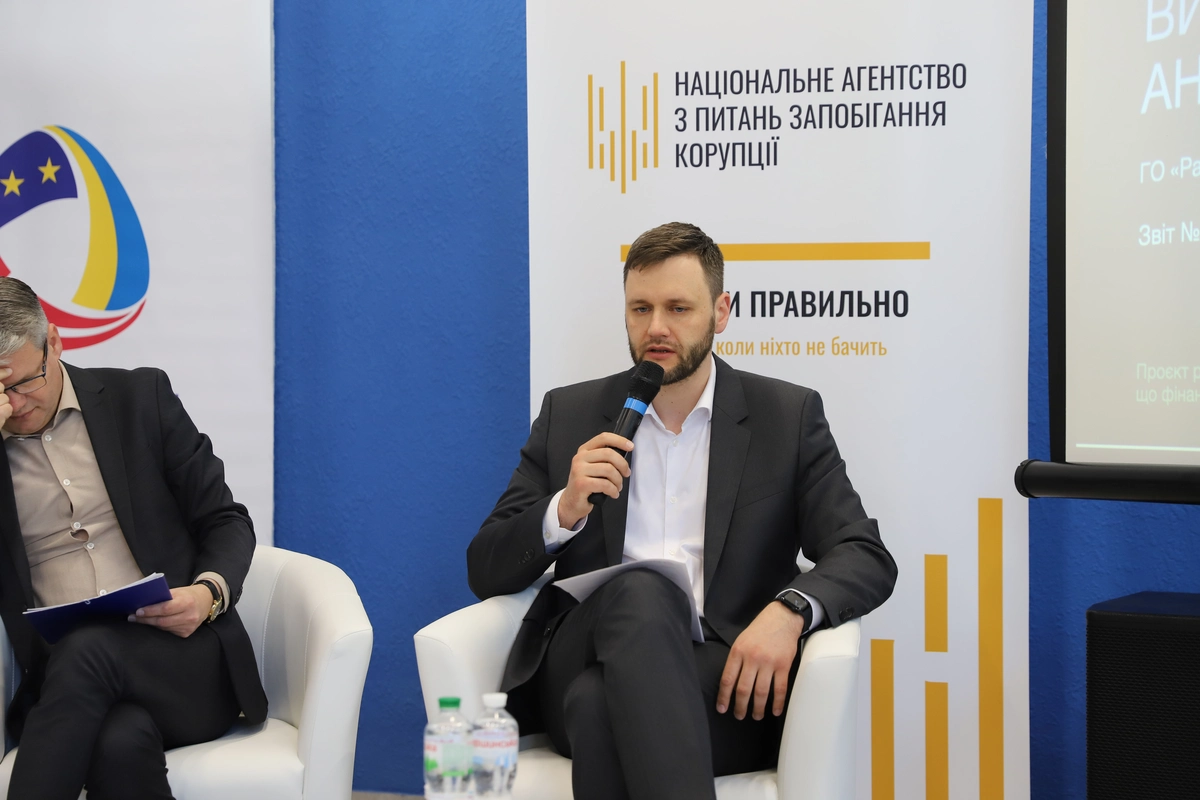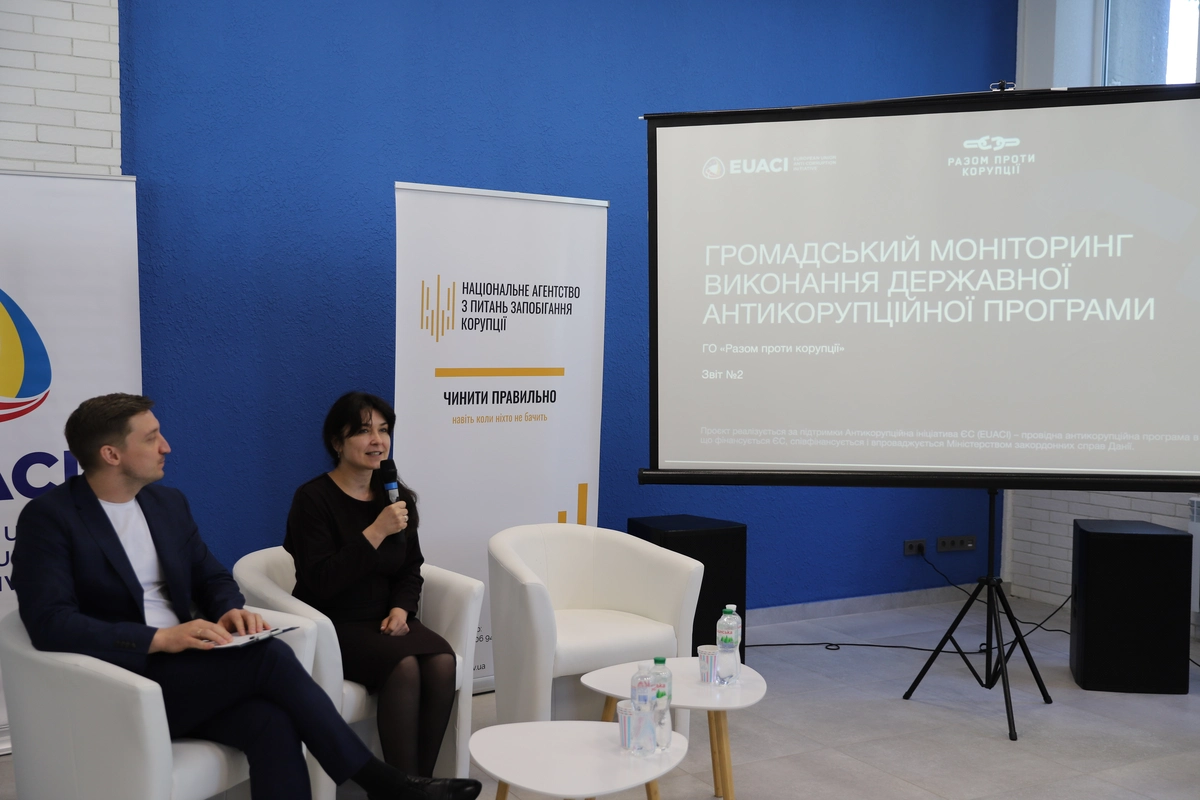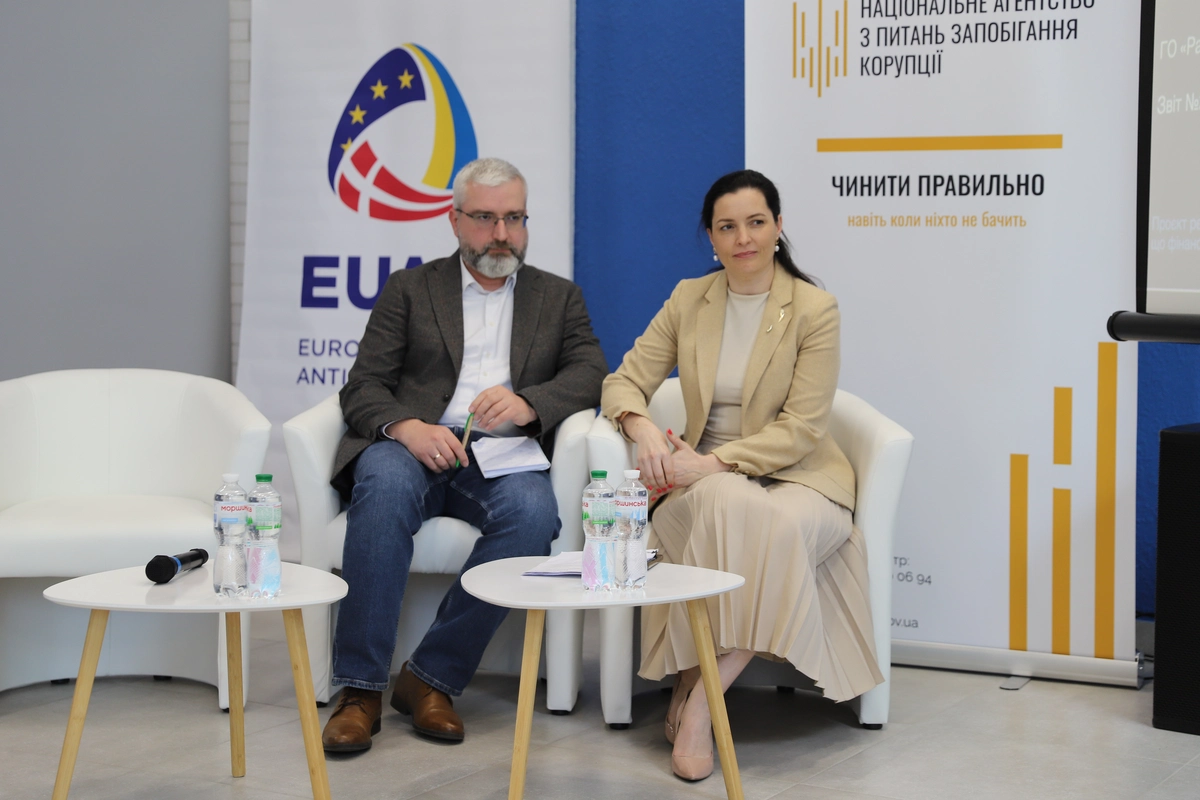
During the year since the approval of the State Anti-Corruption Program (SAСP), experts of the civil society organization "Together Against Corruption" have monitored 164 events in the areas of infrastructure, urban development, healthcare, education and science, land relations and social protection.
The main results of the monitoring are described in detail in analytical reports, which were publicly presented today at the media center of the National Agency on Corruption Prevention (NACP).
According to civil society experts, out of the total number of measures they analyzed, more than 40% have been implemented by government agencies without any comments and are in the process of being implemented. At the same time, according to the NACP statistics, over the past year, more than a third (31.8%) of the measures envisaged by the SACP, which were due as of December 31, 2023, were implemented (the data will be updated based on the results of the monitoring of implementation in the first quarter of 2024).
During the event, NACP Head, Viktor Pavlushchyk, noted that the National Agency carries out both quarterly monitoring and annual evaluation of the implementation of the SACP. "In this aspect, we combine our efforts with the public, complement our approaches and methods of influencing the executors. Since the SACP is not automatically implemented, public monitoring of its implementation is a valuable tool for improving the efficiency of the program," said the NACP Head.
Oksana Velychko, head of the NGO "Together Against Corruption," noted that most of the sectoral measures of the Anti-Corruption Action Program are systemic reforms that are extremely difficult to implement and therefore require a project-based approach to implementation, sustainable management, time, and high team motivation. "A possible formula for success is to create project teams to implement the priority measures of the Action Plan with the NACP leading the way. At the same time, it is important to have donor support for such teams, expert support and monitoring from civil society organizations, as well as an active communication component, including coverage and explanation of the relevant work in the media," Ms. Velychko said.
According to Dmytro Kalmykov, Head of the NACP's Anti-Corruption Policy Department, the presented report is a qualitative alternative to the National Agency's monitoring, and the similarity of the results and assessments confirms the correctness of both monitoring approaches.
The participants of the event were also presented with the algorithm of the Information System for Monitoring the State Anti-Corruption Program (ISM SACP), which allows civic activists and foreign experts to track the progress of each agency, analyze specific events and provide feedback on each of them.
The public event was held as part of an awareness-raising campaign on the importance of public control over public authorities (clause 1.2.1.3.4 of the SACP).









